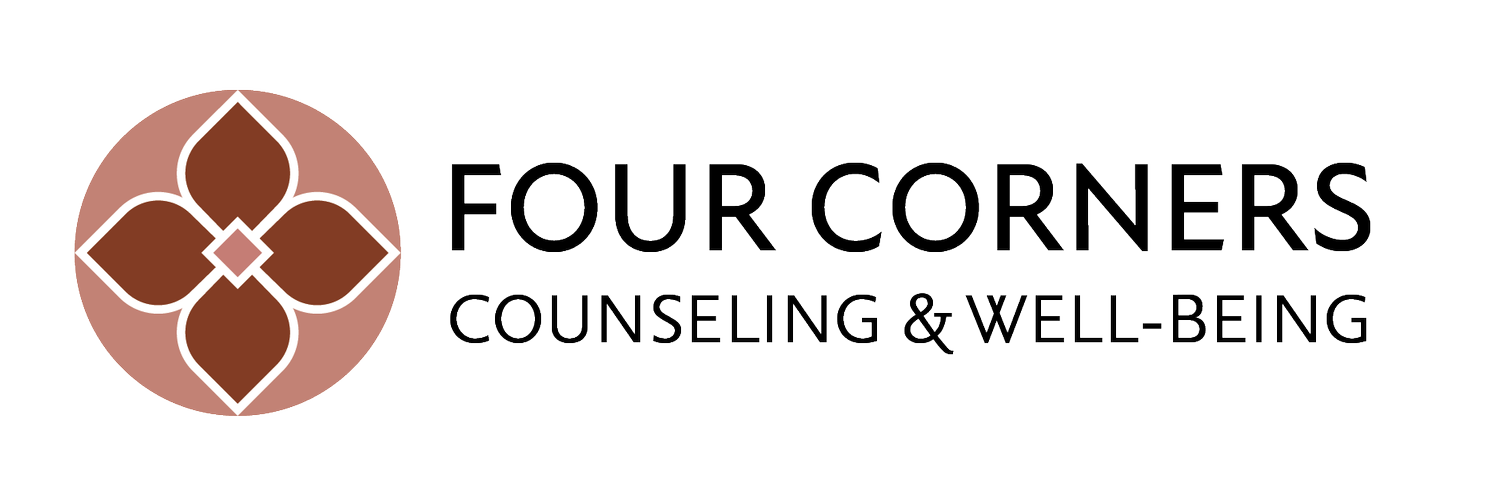Simple Ways to Find Balance
The state of our country, and the “relentlessness of the world,” as my colleague Allison Davis described it recently, is a lot to carry in the midst of already full lives. It can be overwhelming at times! Here’s what works to get me back in balance. Maybe some of these will resonate with you.
First, It’s the simple - but not always easy - things: a good night’s sleep, making time for rest and time for exercise, disciplining myself to limit screen time, and tapping into creativity in some small way (for me, that’s regular journaling, tidying up my yard, and lately some furniture re-arranging). It’s also about connecting with the people who encourage and support me, remembering to have patience with myself and with the process, and tapping into perspective. Let’s talk about that, and more:
Tapping into patience and perspective. My father and I were talking on the phone and we got to the topic of responding to stress and overwhelm with patience and perspective. We both acknowledged that tasks and projects take longer than we think (for example, writing sermons for him; writing blogs for me). Our expectations of ourselves can set us up for stress and frustration. When we can practice patience and tap into perspective, it helps to ease the stress and self-criticism.
Shifting from worry to paying attention. I was listening to a podcast recently and the guest made a comment that struck me. He said he doesn’t like the word “worry” because it feels passive to him. When we worry, we tend to ruminate which keeps our mind active, but it’s easy to get caught up in that cycle and not take action. Instead, the podcast guest said, he replaces “worry” with the phrase “paying attention.”
That reminded me of my favorite definition of love (with credit to my colleague-aged self): Love is paying attention. How about if we pay loving attention to what we are concerned about, instead of worrying? Try this: the next time you hear yourself say, “I’m worried/stressed/concerned about…[fill in with the latest stressful thing that woke you up at 5 am today]” try replacing it with, “I am paying loving attention to…[that stressful thing].” I’ve been playing with this mindset shift, and it really helps me to have a sense of perspective - and a renewed sense of agency. By the way, patience and perspective are both aspects of paying loving attention, I would say.
Do something. Anything. This suggestion comes from a book that caught my eye at the library, called Burnout: The secret to unlocking the stress cycle by Emily and Amelia Nagoski. They suggest, in response to a sense of helplessness or hopelessness: Do something. Anything. It doesn’t matter what. When we feel stuck, it is easy to feel powerless. Try doing something. So - this weekend I rearranged the living room. Let me tell you, the fresh energy was a boost. Here’s Emily and Amelia talking about this:
“Feeling helpless and hopeless after watching news about the state of international politics? Don't distract yourself or numb out; do a thing. Do yard work or gardening, to care for your small patch of the world. Take food to somebody who needs a little boost. Take your dog to the park. Show up at a Black Lives Matter march. You might even call your government representative. That’s great. That’s participation. You’re not helpless. Your goal is not to stabilize the government—that’s not your job (unless you happen to be a person whose job that is, which case you still need to deal with the stress, as well as the stressor!)—your goal is to stabilize you, so that you can maintain a sense of efficacy, so that you can do the important stuff your family and your community need from you. As the saying goes, ‘Nobody can do everything, but everybody can do something.’ And ‘something’ is anything that isn’t nothing.” (Nagoski & Nagoski, 2019, pp. 98-99)
Here’s some wisdom from a retired person that a client recently shared with me: “There are 3 things you need to do each day: read something, move your body, and do one task. That’s it.” This right-sizing of our daily to-do list can help to put things into perspective pretty quickly. It helps us adjust our expectations each day to engage our mind, care for our body, and help our spirit feel some ease and accomplishment without the burden of so many unfinished tasks. I have been choosing one primary task each day and focusing time on it, preferably early in the morning (or late at night, if that’s what the day requires.) This slow and steady, balanced progress each day is a rhythm that supports well-being.
What would be on your list of three primary things to do each day to support your well-being? See if you can come up with 5-8 options that really click with you, and pick three each day. For example: reading, exercise and being creative in a way you enjoy…or journaling, calling/texting a friend, and doing one unfinished task (we see you, laundry pile).
I would add that having some positive social interaction each day is important too, even if it’s as simple as a brief chat with a neighbor during a dog walk (thank you for that this morning, Hilary!), or smiling at someone in the grocery aisle. And with these 3 simplified tasks of the day plus the social connection, you have: mind, body, spirit, and relationship - the four corners of a thriving life. Our Four Corners motto!
At a recent FCCW team meeting, we got to talking about self-care in the midst of chronic stress and overwhelm, both for our clients and for ourselves. It was a very helpful & encouraging conversation as we each seek to offer our best to our clients. I was inspired to reflect on a new way to think of self-care through the lens of IFS (Internal Family Systems): Care from the Self (as in, Self-energy towards our parts) and care for the Self (that allow us to access qualities of Self-energy, like patience, perspective, calm, curiosity, courage, compassion, contentment, creativity, etc.) This means, for me, getting back to the basics: prioritizing sleep, getting in exercise and/or movement each day, making time to journal, and having positive interactions with loved ones and friends. It also means paying loving attention to myself - to my parts that are having many thoughts and feelings and sensations throughout the day and week. Whenever I can take a regulating sigh and feel a sense of loving connection with myself, that’s a good moment. I encourage you to try it for yourself! You are worth it.
One last thing: When you feel just too much stress, or you’re overwhelmed and don't know what to do or say next: lean into love. Whatever that means for you in the moment. Always, always, end on love. End conversations on love. End a firm admonition to your child on love. End a workplace interaction on love. End your day on love. (One routine that my spouse and I have each day is to share “Three Good Things” before bed. It helps to ground us in the good and to reconnect with perspective on the daily. It’s also a really nice way to connect at the end of a busy day!) Whenever you are in doubt about what to do next, end on love.
A simple exercise that can help us end on love, when we are struggling, is the Self-Compassion Break. It has 3 steps:
Name your suffering (e.g. “I am really stressed about this work project.”)
Connect with common humanity (“Other people get stressed about work too. I am not alone in this experience.”)
Say something encouraging and loving to yourself (“I am making progress. I have done hard things before. I am a good person and I can do this.”)
So, please remember to love. Remember to pay loving attention to your stresses, your worries, your friends and loved ones, and yourself. Most especially your Self. I’ll be right there with you, practicing this too!



